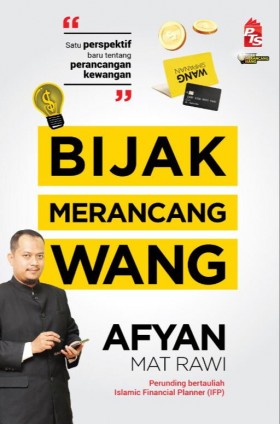BUDGET is simply a plan on how to spend your money. It's a way to balance the money you have with the money you spend.
You create a plan by making choices. You decide on what you will spend the money on, how much money you want to spend, and how much money you want to save.
Your plan is based on your income and expenses. Since every person's income and expenses vary, your plan needs to fit your situation. Your budget is based on your goals, needs and wants.
Let's take a look at some examples:
| GOALS | NEEDS | WANTS |
| Own a Car | Food | Fine dining |
| Own a Home | Shelter | Resort-like bungalow |
| Get Married | Clothing | Expensive branded clothes |
| Set up a business | Quality time with family | Expensive vacations |
| Provide good education to children | Car/ Motorcycle | Luxury car |
| Retire comfortably | Mobile phone | Latest full-featured phone |
| Contribute to charity | Computer | Most advanced computer Etc, etc, etc... |
From the chart, it's sometimes hard to differentiate between needs and wants. And as you move on in life, your basic needs may extend to more than just food, shelter and clothing.
In today's IT age, mobile phones and computers are practically indispensable. As there are cars that cost just RM30,000 and those well over RM300,000, there are phones that go for about RM100 and those well over RM1,000. The same goes for computers.
We only need a few things, but our wants are endless!
Why should I have a budget?
Anyone who has an income and expenses needs a budget. It helps you to use your money to reach your goals. It helps you to be in control of your money.
How do I start a budget?
First, list your income and fixed expenses. The latter are expenses that don't change from month to month such as rent, home and car instalments, and insurance premiums.
Other expenses are variables such as utility bills, clothing or entertainment.
Next, keep track of how you spend your money by writing down what you have bought and how much you have spent. This will take time, but the effort will help you see where your money goes.
For the next 30 days, write down in your planner (use Excel spreadsheet if you're tech savvy) how much and what you spent on, from petrol, movies and nasi lemak for breakfast to donations and zakat contributions.
Then at the end of the month, calculate how much you have spent in each area. Add up all the columns to see your expenses on average.
Also, get your children involved as this will not only sharpen their maths skills but also expose them to the concept of budgeting.
How do I decide what to spend on?
By reviewing your chart/spreadsheet, you can see where your money goes. It's often helpful to discuss your chart with someone who manages his money well.
A big portion of your income will go to basic necessities such as food, housing and clothing. These are your needs.
Buying new clothes, new dishes or new toys for your children are your wants, which you can live without.
The following questions may help you decide what to do:
* Which spending can't be cut?
* What is the minimum I need to live?
* Which spending is needs, and which is wants?
* What will happen if I delayed some of my spending?
* Can I buy cheaper substitutes?
Now you're ready to make your personal budget.
Write down how much money you need for each kind of expense for a month. For example, RM300 for food, RM100 for transportation, RM50 for savings, and so on.
Try to set both short-term and long-term goals.
Short-term goals may be to limit money for food to RM10 a day, take the bus or LRT instead of driving to work, or borrow your neighbour's newspaper for free family entertainment. Long-term goals may be to save RM1,000 for a new refrigerator (energy-saving and environment-friendly models are ideal!), get out of debt, or move to a different neighbourhood (or as some might say, balik kampung!)
How do I stick to my budget?
This takes practice and self-discipline. Here are some suggestions:
* Pay the necessary bills first. If possible, try to stretch your bills evenly over the month so that not all are due on the same day.
* Save some money each month, no matter how much. You just want to instil that habit.
* Make a list before you go shopping. When you shop, remember the difference between needs and wants.
* Plan ahead and buy items on sale. Check out discount stores and garage sales. Share reusable items with family and friends.
* Stay away from places where you may spend unnecessarily.
* Learn from family and friends on ways to save money and follow a plan.
* Keep a record of how your money is spent. Make it simple. (Tip: the "555 pocketbook" may come in handy!)
* Compare that record to your written budget to see if you're in line.
When should I change my budget?
Don't be disappointed if you're unable to follow through with your budget. It takes time to change one's spending habit!
Your budget may change as your needs or the needs of your family change. If your income increases or decreases, you will also have to make adjustments. The important thing is that you have a plan and that you're in control of your money.
And don't forget to make prudent financial management a way of life!
For details, visit www.akpk.org.my.
* AKPK is an agency set up by Bank Negara Malaysia to provide free services of financial education, counselling and debt management programme. Contact 1800 88 2575 or visit www.akpk.org.my.
NSUNT: Jan 9, 2011: Sunday Life & Times: 008
















No comments :
Post a Comment